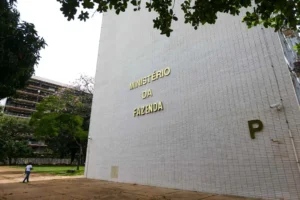Ministry of Finance publishes ordinance with rules for betting houses

Written by :
Heloisa Vasconcelos

The Ministry of Finance published in the Official Gazette of the Union this Friday (27) Normative Ordinance No. 1,330, which establishes rules for sports betting operators who intend to operate in Brazil after the market is regulated.
The Ordinance is based on Provisional Measure 1,182 and establishes general rules on the rights and obligations of bettors, the prevention of money laundering and other crimes, responsible gaming and prior expression of interest.
Betting houses have a period of 30 days to express interest in operating in the national market.
The expression of prior interest does not constitute prior authorization to operate a fixed-odds betting lottery in Brazil.
For Tiago Gomes, partner at Ambiel Advogados and specialist in Gaming and Betting Regulation, the publication of the ordinance is excellent news for the industry and shows the commitment of the Ministry of Finance to ensure that the regulation of the betting market happens as quickly as possible.
Considering that a large part of the operators in this market are foreign companies, this will allow them to organize themselves in advance to comply with bureaucratic requirements. (Tiago Gomes)
He believes that the expression of interest gives the Ministry of Finance a good idea of the demand and could speed up the approval of bill 3,626.
“The measure is interesting, because it will give the Government a good idea of the actual interested parties in the market and, assuming that there is a considerable number of interested parties, I believe that this could serve as an additional incentive for the Chamber to vote quickly on any changes proposed by the Senate,” he says.
Rules for companies
The text contains several requirements for operators who want authorization to operate fixed-odds betting in Brazil, including:
- Prove its regular constitution according to Brazilian laws, with headquarters and administration in the country;
- Verify the lawful origin of the resources that make up the share capital;
- Provide a customer service for bettors, based in Brazil, with support in Portuguese, operated via free electronic and telephone channels, operating twenty-four hours a day, seven days a week, able to respond to complaints, queries and other problems related to betting;
- Adopt integrity mechanisms when placing fixed-odds bets, in accordance with specific regulations;
- Integrate national or international sports integrity monitoring bodies
- Implement a policy to prevent manipulation of results, money laundering, financing of terrorism and the proliferation of weapons of mass destruction, in accordance with specific regulations;
The ordinance also prohibits operators whose partners are people involved in professional sports organizations, members of technical committees, referees or managers of Brazilian sports teams from receiving authorization to operate in the country.
Beware the gambler
The Ministry of Finance’s ordinance highlights that bettors have the right to receive information to defend their rights and interests and to obtain and use the service, with freedom of choice, in compliance with current legal and regulatory provisions.
One chapter of the ordinance specifically deals with responsible gaming policies. According to the document, to register with a betting house, the bettor must provide the following information:
- Full name;
- Date of birth;
- Identification document number in the General Registry (RG) or passport; and
- Individual Taxpayer Registry Number (CPF) or equivalent document, if foreign.
The sports betting operator must carry out informative and preventive actions regarding compulsive gambling disorder and offer the bettor a daily limit on playing or betting time, a maximum loss limit, a pause period and self-exclusion.
Advertising and marketing
The Ordinance also establishes guidelines for the publication of advertisements relating to sports betting.
“Communication, advertising and marketing actions for fixed-odds bets must be guided by social responsibility and the promotion of awareness of responsible gaming, aiming at collective security and the fight against illegal betting, encouraging self-regulation and the adoption of good practices implemented in the international sports betting market”, it defines.
The document prohibits the placement of advertising in universities and schools that presents betting as socially attractive or provides misleading information about possible winnings for bettors.
